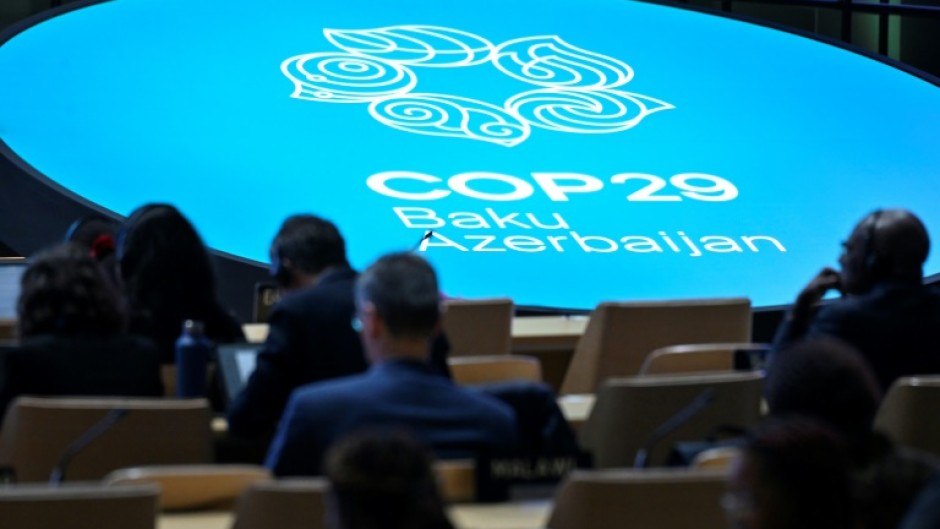BAKU - A fresh draft of a climate pact unveiled Thursday at COP29 failed to break an impasse over money, with time running for nations to reach a long-sought trillion-dollar finance agreement.
The UN climate summit in Azerbaijan is supposed to conclude on Friday but the latest draft only underlines divisions as nations return to the negotiating table.
"As for the text overall, I'm not going to sugarcoat it -- it is clearly unacceptable as it stands now," said EU climate commissioner Wopke Hoekstra.
"I am sure there's not a single ambitious country that thinks this is nearly good enough".
The nearly 200 countries in Baku are supposed to agree on a new target to replace the $100 billion a year that rich nations pledged for poorer ones to fight climate change.
Many developing countries are pushing for $1.3 trillion, mostly from government coffers, though wealthy nations have balked at such demands and insisted private money helps meet any final goal.
The latest draft recognises that developing countries need a commitment of at least "USD [X] trillion" per year, leaving out the crucial exact figure sought in Baku.
Ali Mohamed, the chair of the African Group of Negotiators, an important negotiating bloc, said the "elephant in the room" was the missing concrete number.
"This is the reason we are here... but we are no closer and we need the developed countries to urgently engage on this matter," said Mohamed, who is also Kenya's climate envoy.
Other key sticking points -- including who contributes and how the money is raised and delivered -- were left unresolved in the slimmed-down 10-page document.
Many nations have also expressed concern that a pledge to move away from fossil fuels made at last year's COP28 was being neglected in Baku.
- 'Two extreme ends' -
Ireland's climate minister Eamon Ryan insisted negotiations on finance were "advancing" in backroom discussions.
"This text is not the final text, that is clear. It will be quite radically different. But I think there is room for further agreement," he told AFP.
Norway's climate minister also offered a rosier view: "The deadline isn't here yet," he told AFP.
The draft entrenches the broad and opposing positions of developed and developing countries that have largely persisted since COP29 opened over a week ago.
Developed countries want all sources of finance, including public money and private investment, counted toward the goal, and for wealthy countries not obligated to pay, like China, to chip in.
Developing countries want the money to mostly come from rich government budgets in the form of grants or money without strings attached, not loans that add to national debt.
"The new finance text presents two extreme ends of the aisle without much in between," said Li Shuo, director of the China climate hub at the Asia Society Policy Institute.
- 'An insult' -
Hoekstra said the European Union still needed clarity over what elements in the deal would be counted toward the eventual finance goal.
"I'm sorry to say, there's a lot of work ahead for us, for the presidency, for all parties involved," he said.
The EU and the United States, two of the biggest providers of climate finance, have resisted pressure to put a figure on the table until the shape of the deal was clearer.
"The fact there is no number specified for the climate finance goal is an insult to the millions of people on the frontlines bearing the brunt of climate change impacts," said Greenpeace's Jasper Inventor.
Mohamed Adow, a Kenyan climate activist, said developing countries "need a cheque but all we have right now is a blank piece of paper".
By 2035, developing countries excluding China are estimated to need $1.3 trillion a year in outside financial assistance to reduce emissions and build resilience to climate change.
Joe Thwaites from the Natural Resources Defense Council said Azerbaijan as the COP29 presidency would "need to propose an option three that bridges the two".
COP29 lead negotiator Yalchin Rafiyev told AFP last week that the rule of climate negotiations was that everybody leave "equally unhappy".
bur-np/lth/ach
By Nick Perry And Julien Mivielle
AFP

